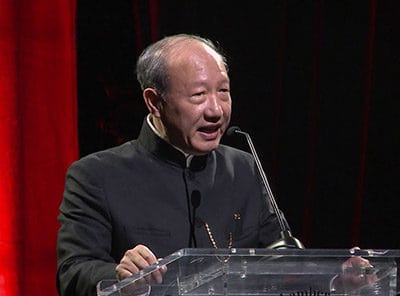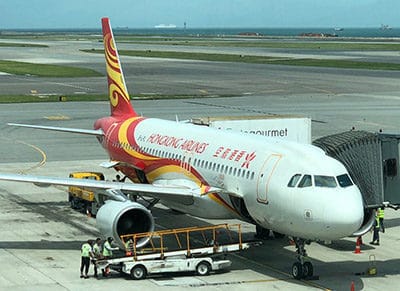
HNA Group chairman Chen Feng may need to do some testifying with the Shanghai exchange
HNA Group’s primary real estate subsidiary, which had overdue credit obligations of RMB 1.3 billion as of 31 December, has been asked by the Shanghai stock exchange to explain apparent financial irregularities regarding its 2018 accounts.
In a notice posted last week by HNA Infrastructure Investment Group, the unit of the mainland conglomerate disclosed that the bourse is seeking details of the company’s 2018 books.
The exchange is probing in particular an apparent mismatch between the group’s declared RMB 15.6 billion in cash and equivalent assets and its apparent inability to make payments on loans and other liabilities totalling just over 8 percent of that amount during last year.
The stock market’s inquiry came just less than one month after a Hong Kong-listed HNA unit, CWT International had assets seized by creditors following its failure to meet obligations on a HK$1.4 billion loan.
During May, HNA-controlled Hongkong Airlines reported that its auditor had resigned less than one month after directors in the company had raised allegations of fraud amid a shareholder revolt.
Real Estate Unit Faces Cash Questions
In its letter, the stock exchange is said to have required HNA Infrastructure to disclose the bank account details of deposits listed on its 2018 books and to clarify if these cash resources are restricted in any form.

Parts have reportedly been falling off Hongkong Airlines jets in recent weeks
The regulator also requested an explanation from the company, which is the parent of HNA Real Estate Holdings and Hainan Hailing Real Estate, to deliver a full explanation of the reason for it failing to meet its credit obligations despite the listed bank deposits.
“That the exchange is conducting an inquiry undeniably reflects regulators’ suspicions regarding HNA’s financial condition,” Brock Silvers, managing director of China-based investment advisory firm Kaiyuan Capital told Mingtiandi. The real estate finance veteran added that HNA may be facing difficult decisions about how best to meet its debt obligations.
HNA Infrastructure last year was involved in several of the group’s ongoing string of asset disposals including the RMB 5.7 billion sale of a stake in its Dayingshan project in Hainan to R&F Properties. During the same month the company sold the first of a separate pair of Hainan projects to Sunac China Holdings for RMB 1.9 billion.
However, those asset disposals also involved delayed payments by acquirers and have not yet dug the company out of its cash pit.
Cash Deposits Jump 8X as Profits Slide
HNA Infrastructure, which also operates ten airports in China, additionally faces questions from the stock exchange regarding its ability to repay the RMB 45.4 billion in total liabilities it reported as of 31 December.
Again examining the company’s declared current assets, the regulator asked why the balance of deposits held by its HNA Group Finance subsidiary, which accounted for more than one third of the available cash listed on its balance sheet, had jumped almost eight times over the past two fiscal years, reaching RMB 5.7 billion at the end of 2018.
The stock exchange also took notice of the apparent incongruency between those rising cash deposits and HNA Infrastructure’s income statement.
The regulator asked for an explanation of how, during the same two year period that its cash reserves had jumped eight-fold, the gross profit margin of the company’s airport operation division slid by 15 percentage points, revenues from its engineering unit contracted by 95 percent, and revenue from its retail business dropped from RMB 1 billion in 2016 to zero for 2018.
The inquiry also is looking into a surge in HNA Infrastructure’s capital outflow for financing and related activities, which grew to RMB 8 billion in 2018 – a 92-fold leap compared to the previous year.
HNA Infrastructure was also asked to provide further details on receivables which it declared it was facing from its sales to R&F and Sunac, despite the company having declared the Sunac sale as completed on its annual report.
Parts Falling Off of Planes as HNA Hopes to Avoid a Crash
The stock exchange inquiry raises further doubts about the ongoing viability of HNA Group, as the parent company of China’s fourth-largest airline struggles to pay off RMB 40 billion in debts which are payable this year.
On April 22nd HNA revealed that creditors of its CWT International unit had seized assets in Singapore, the US and China, after the company defaulted on its HK$1.4 billion loan, and media reports during the past week indicate that parts are now falling off of planes belonging to its Hongkong Airlines unit, causing flights to be grounded.
“The situation with Hongkong Airlines is surely related to the current inquiry, as both cases reveal a company struggling to stave off insolvency,” Kaiyuan’s Silvers noted. “The resignation of Hongkong Airlines auditors would have been reported to the exchange, and likely played a role in initiating the inquiry. Given the company’s impending debt obligations, it seems increasingly likely that HNA may require significant reorganization or recapitalization before year-end.”
The resignation of Hongkong Airlines’ auditors early last month came after shareholders had attempted to unseat the company’s HNA-appointed management team amid accusations of financial irregularities.
Leave a Reply